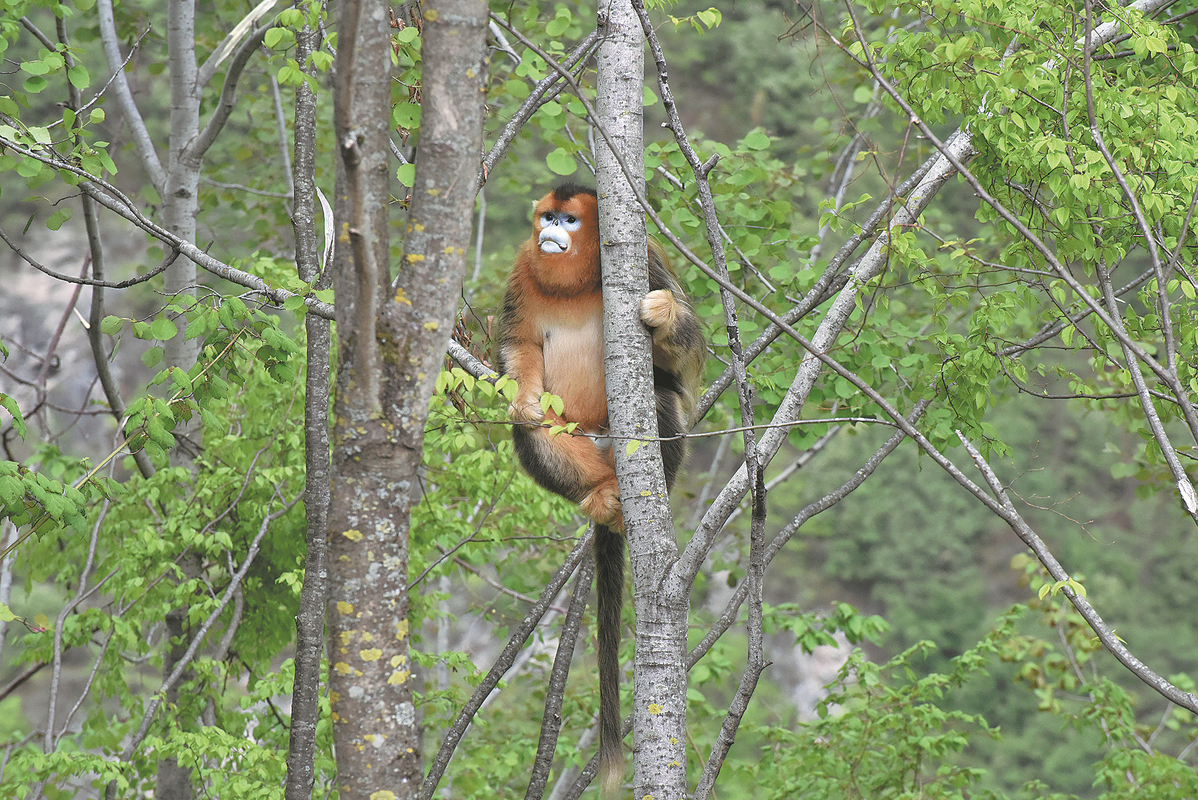Protection efforts see golden snub-nosed monkeys thrive


On May 22, the Ministry of Ecology and Environment and the Chinese Academy of Sciences jointly released the Red List of China's Biodiversity: Vertebrate (2020), which downgraded the Sichuan golden monkey's status from "vulnerable" to "near threatened".
The list shows that through the collective efforts of various protection zones in China, the number of Sichuan golden monkeys in the wild has risen from 14,000 in 2002 to about 25,000, while the population's distribution has expanded significantly, which illustrates the success of the conservation efforts.
Tang said that the Baihe reserve has a humid climate and lush vegetation, which serves as a rich source of food for the monkeys, who mainly eat wild plants, fruit and vegetables. They consume tender tree leaves in spring, wild fruit in autumn and tree bark to survive the harsh winter.
"So, protecting the environment here is the best way to protect the Sichuan golden monkey. Fire prevention is a major focus," Tang said, noting that no fires have been reported at the Baihe reserve for more than 40 years.























